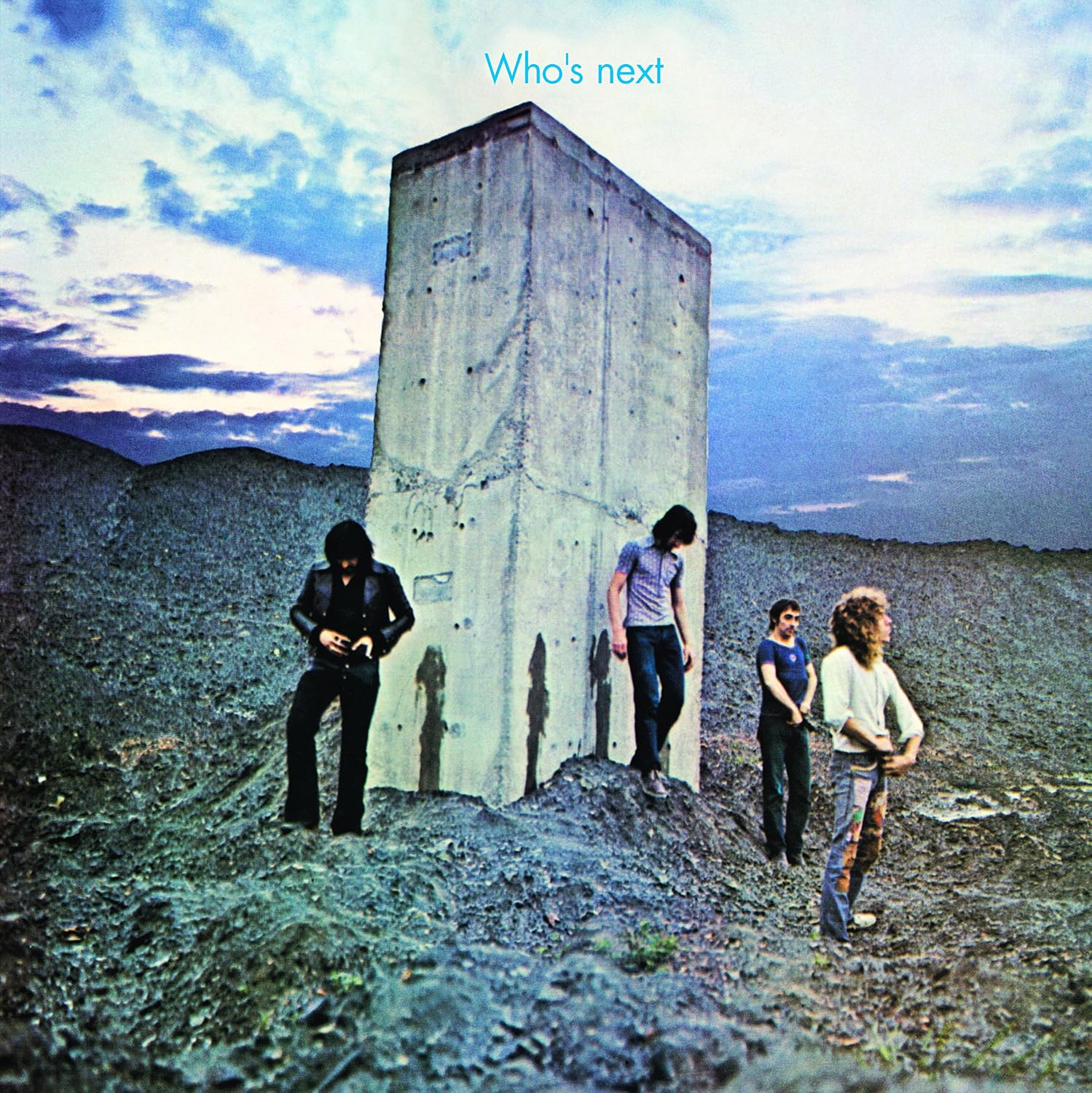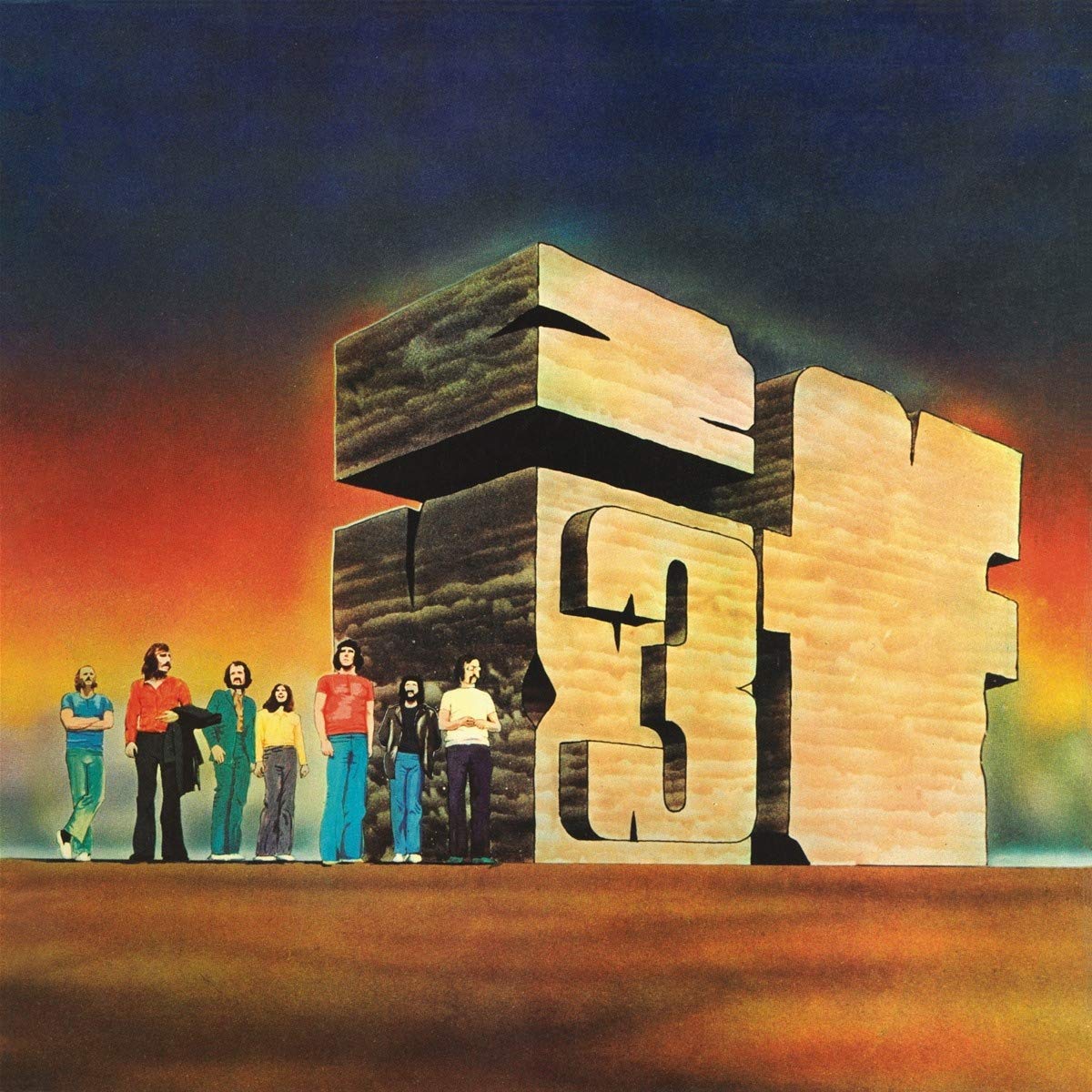Fifty Year Friday: August 1971

Pete Townsend planned to follow-up the successful Tommy with another rock opera — one which would incorporate data-driven composition, multimedia effects, and audience interaction when performed live. Practical and execution limitations aside, the bottom line is that the musical work itself was abandoned with some of the material recorded for “Who’s Next”, the Who’s fifth studio album released on August 14, 1971.
Though not an epic effort comparable to Tommy, the songs are strong and the intro to “Baba O’Riley” makes a lasting impression, suich that I still remember hearing it for the first time almost fifty years later, and “Bargain” and “Behind Blue Eyes” are two of Pete Townshend’s best classics.

Upon the release of the Beach Boys’ Surf’s Up on August 30, 1971, Warner Brothers Records ran a limited-time promo beseeching those hesitant about purchasing the album, to bring in one of their old Beach Boys albums as a trade-in for the new album. I didn’t own any Beach Boys albums and was more dissuaded from checking out the album than encouraged by what to me, at age 16, appeared to be more of an act of desperation on Warner’s part than a legitimate marketing strategy. However, once I heard the album when visiting my cousin in northern California, I was certainly surprised between the actual material on the album and what I had expected of a group I had thought whose time and relevancy had long expired.
The sound was fresh, with no sixties-artifacts, and though sounding tame to the many Zappa albums in my cousin’s shared collection with his roommate, was still vital and contemporary musically and lyrically. Soon I purchased the album, and listened to it a few times and then, like most albums, it fell out of circulation, but leaving an indelible respect for both the group and the album. The masterpiece of the album is Brian Wilson’s “Til I Die.” I paid little attention to the lyrics in 1971, but took notice of them now when relistening to this track and, now knowing about Brian Wilson’s battles with depression and mental illness, the emotion inherent in the lyrics and the supporting wistfully ironic melody and harmonies are heart-wrenching:
I’m a cork on the ocean
Floating over the raging sea
…
I’m a rock in a landslide
Rolling over the mountainside
…
I’m a leaf on a windy day
Pretty soon I’ll be blown away
How long will the wind blow?
How long will the wind blow?
Ohhhh
Until I die
Until I die
These things I’ll be until I die
These things I’ll be until I die
These things I’ll be until I die
These things I’ll be until I die
These things I’ll be until I die
These things I’ll be until I die
These things I’ll be until I die
These things I’ll be until I die
These things I’ll be until I die
These things I’ll be until I die
Another unexpected treat that came my way in 1971, was Ten Years After sixth studio album, A Space in Time. Like the Beach Boys, Alvin Lee and company provide an updated sound, incorporating sound effects leading into tracks harkening back to their fourth album, Cricketwood Green. Alvin Lee writes all the music except for a short final instrumental jam that ends the album.
The album showcases Alvin Lee’s engaging, proficient guitar work along with his solid instinct for blues and ability to write more traditional pop songs — the album giving us the band’s highest charting single, “I’d Love to Change the World” and “Over the Hill” with its ironically upbeat baroque string episode contrasting against the bleakness of the lyrics.

With new vocalist Kenji “Damo” Suzuki, pretty much pulled off a street corner while in the act of busking, Kenji “Damo” Suzuki, Can releases their second, and most heralded and influential album, Tago Mago. Assuming no sonic boundaries and embracing a wide array of musical options, the group pushes the borders of pop music into areas previously occupied by German academic composers and late sixties free jazz artists, thus extending the characteristics, definitions and expectations of what English and American prog-rock fans would soon call Kraut-rock. The first and second sides are more accessible, and one cannot ignore that some listeners were more under the influence of drugs by the third and fourth sides and could handle the increased musical entropy on that second LP, yet one really needs the entire senses about them to fully appreciate this work. There is a lot of coherence within each individual song and the focus on the basic language that is individually conceived for each track. It’s not an easy album to listen to, but given the right mood and circumstances, is one that should be listened to, carefully, and not as background ambience.
 Other albums of note include If’s third album, IF3, a balanced blend of rock, light progressive-rock elements and jazz-rock, and Atomic Rooster’s third album, In Hearing of Atomic Rooster, a mostly hard rock album with some progressive rock elements.
Other albums of note include If’s third album, IF3, a balanced blend of rock, light progressive-rock elements and jazz-rock, and Atomic Rooster’s third album, In Hearing of Atomic Rooster, a mostly hard rock album with some progressive rock elements.
